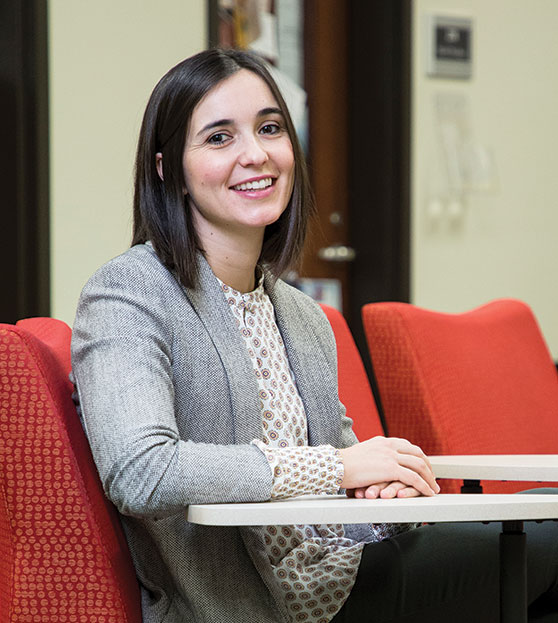Inheriting the Trauma of la Guerra Civil Española
Berta Carrasco, Ph.D. | Assistant Professor of Spanish
The war ended 80 years ago, and yet in Spain its wounds feel fresh. That’s what happens when painful memories are held in check until one day the floodgates finally open.
“The Spanish Civil War is still alive. We still live it and sense it in the 21st century.”
Dr. Berta Carrasco says this with intensity. A granddaughter of the Spanish Civil War, as she puts it, she has made the conflict’s cultural and psychological consequences her professional focus. She analyzes peninsular literature that explores the war’s impact in works of memoir, history and fiction. With the passage of time between experience and publication, the line between the genres blurs; some Spanish books about the war are best called “testimony novels,” Carrasco says.
La Guerra Civil’s profound impact on Spanish women is her scholarly niche. Just years before the war began in 1936, they won the right to vote and other rights. At the war’s end in 1939, those rights were gone — stripped by new dictator Francisco Franco. He jailed women who pushed back. “Franco thought that women who were into politics and liked to fight for their rights were mentally sick,” says Carrasco.
For decades afterward, few Spaniards spoke about the war — first for fear of government reprisal, and later, after Franco’s death, because they tacitly agreed to forget the past so that the country could move forward. But Carrasco says their loss and trauma resonated in their children’s generation, whose identities were shaped amid silence and repressed pain. In a 2018 article in the journal Michigan Academician, one of three essays she published last year about female Spanish authors’ work about the war, Carrasco analyzed Maria Barbal’s novel País Intimo (“Intimate Country”), in which it takes decades for a daughter born in the 1950s to grasp that her mother’s coldness stems from wartime experiences.
Much has changed, Carrasco says, since passage of the Ley de la Memoria Histórica, a 2007 law that recognized the victims of the war. Some monuments to Franco have come down; some streets that bore his name have new ones now. Roadside mass graves are being excavated, and political prisoners’ bones are being given to their families. Books written years ago in prison or in exile are joined by newer work about the war by contemporary authors.
“I know in centuries coming, this is not going to be as personal,” Carrasco says. “This will become part of history. But for me, when I still have living grandparents who fought in it, it is not. It is my present, actually.”
Read Dr. Carrasco’s article about País Intimo online.

